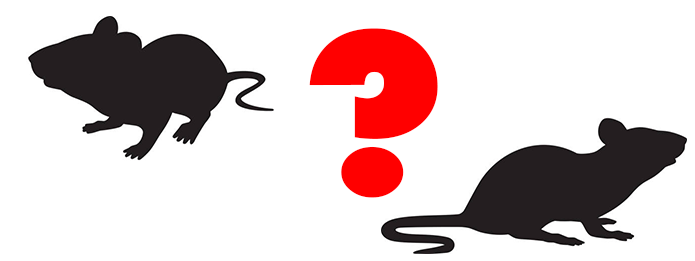Kitchener Pest Control: Is It A Mouse Or A Rat?

Mice are small and cute and rats are big and scary-looking, right? Not exactly. That is how the two types of rodents are presented on TV, but there are large mice, tiny rats, and several subtle differences between the two. Read on to learn the physical characteristics of mice and rats, understand how to tell which ones may pose a threat to you and your family, and know when to call for an inspection and home rodent control Kitchener.
Characteristics of Mice
Their media presentation may hold a grain of truth: Mice are typically smaller than rats as they measure about 20cm in length at their longest (including the length of their tails). They’re typically brown, grey, or sometimes white, and they usually have big ears. Though pet mice can be friendly, they are often shy and stick to their home territory; however, they have a reputation for being curious and investigating what interests them.
Characteristics of Rats
Rats are typically bigger than mice, and sometimes they can grow up to 40cm in length. In addition to the white, grey, or brown fur you see in mice, rats can also be black. They can also leave marks on what they touch due to the grease in their fur. Rats are good climbers and are often more cautious than mice, and because of this, they may not be as easy to catch.
Quick Ways to Distinguish Between Mice and Rats
It can be difficult to tell the difference between mice and rats if you aren’t comparing them side by side. Check out these quick facts below in order to help yourself distinguish between the two:
- Rats are often larger with smaller ears and blunt snouts while mice are often smaller with bigger, floppier ears and long snouts
- Rats may look “greasy” or dirty, while mice may have a fluffier, cleaner appearance
- Rats are often black in colour, while mice usually are a lighter shade
- Rats do not usually stand on their hind legs, while mice do this often to investigate or when they are fighting another animal
- Rats snack on almost everything, including mice, while mice do not eat other animals
Should I Try To Remove Them by Myself?
Please don’t! Any creature that has the ability to bite and carry fatal diseases should be inspected and removed by a professional who is trained to do so. Using a DIY method could result in a worse infestation problem or harm to you, a pet, or a family member. Please have a thorough evaluation performed to determine what you’re dealing with before you take action into your own hands.
Additionally, no matter how cute the wild animal is, please do not try to domesticate it or keep it as a pet. Even small mice that seem harmless may carry diseases, bite you or your children, or bring fleas and ticks into your home. If you or your child is intent on having a rodent as a pet, buy it from a reputable pet store — don’t retrieve it from underneath your floorboards!
Contact Truly Nolen Today
Regardless of whether you’re dealing with a rat or mouse infestation, neither of these creatures are wanted houseguests unless they’re pets living in cages. Rats are often seen as more dangerous as they have a reputation for spreading disease, but mice spread infection as well due to the fact that they are animals who enter your home from the outside world.
We can help you identify your pests, give you a quick estimate for removal, and much more. If you have questions about how to distinguish which type of animal is living in your home or if you would like to schedule your estimate, please contact Truly Nolen in Kitchener today.